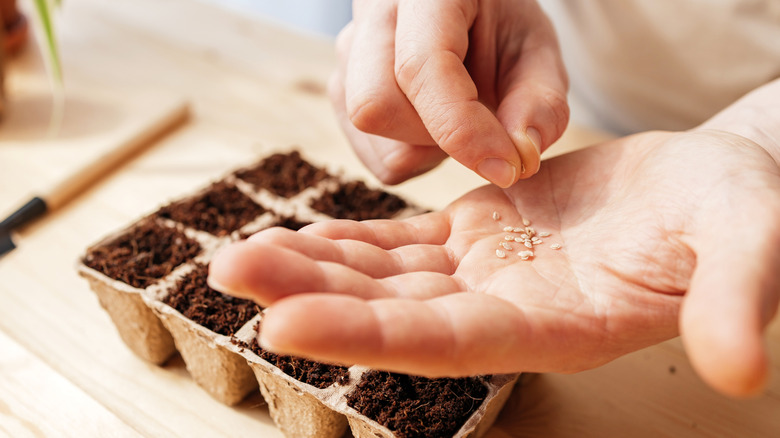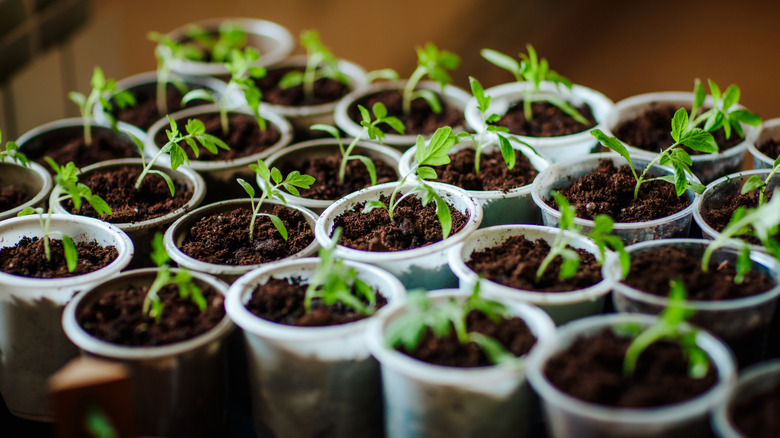The Secret To Getting Plants To Germinate Is Hiding In Your Kitchen
There's a bottle in your home right now that's about to change the game for your gardening endeavors, and it's not what you might expect. In fact, you almost definitely did not buy it for the garden, since it's vinegar. Beyond its many uses in salad dressings, and even as a versatile cleaning tool, it turns out that vinegar — especially white distilled vinegar — can be a secret weapon in helping stubborn seeds to finally get growing.
Seeds need water to activate the enzymes that trigger germination, but when a seed's coat is too tough, water can struggle to get in. Vinegar, thanks to its acetic acid content, can help break down those tough seed coats faster and, as the acid lightly breaks down the surface, moisture is able to penetrate the seed and kick-start the process much faster.
This method works well for many plants with naturally hard seeds. For example, nasturtiums are a gorgeous flower you should seed indoors as they're one of several species with a harder seed that could that benefit from a vinegar soak. Other examples include morning glories and parsley. This vinegar trick can be a simple and safe way to get a head start on the germination process. Plus, considering almost everyone has vinegar in their home already, it's no wonder this trick has been passed around in gardening circles for generations.
How to use vinegar to boost seed germination
Implementing this vinegar trick couldn't be easier. Start by mixing one cup of water with one tablespoon of white distilled vinegar before placing your seeds in the mixture and letting them soak for no more than 12 hours. Some even suggest that just 15 minutes should be enough time for the vinegar to do its job — with longer soak times running the risk of causing damage. After they've soaked, plant the seeds in a seed tray or pot and water them so they stay hydrated and ready to sprout. One thing to keep in mind is that this trick is not suitable for every seed. In fact, softer seeds, or those without a hard coating, may be damaged by the acid. Always check your seed packet, or a trusted gardening source, for the particular needs of the seed before trying this out. However, when used properly and in the right way, this simple method can take days — sometimes even weeks — off your germination time.
Outside of germination, vinegar has a other garden-friendly uses as well. If you're looking for natural ways to get rid of ants without poison, vinegar can make an excellent deterrent when sprayed along garden edges and pathways. Vinegar can also help clean mineral deposits off your clay pots. Remember that vinegar is a powerful tool, so use it thoughtfully, and sparingly, when bringing it into the delicate world of your garden.

